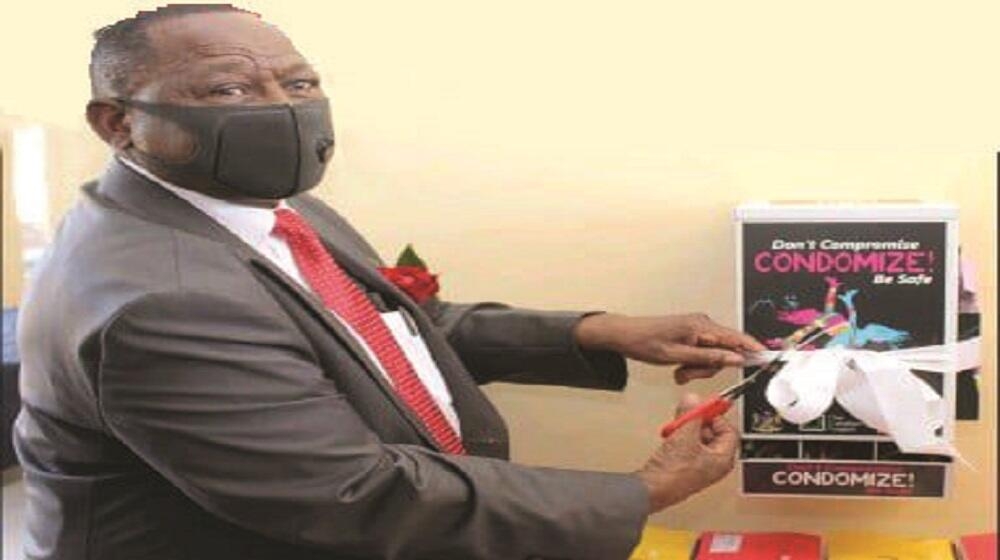WINDHOEK, Namibia ̶ Namibia remains one of the hardest-hit countries with an HIV prevalence rate of 12.6% among adults 15-64 age, according to the 2018 Namibia Population-Based HIV Impact Assessment (NAMPHIA) report.
Despite gains made in the prevention of HIV programs, recent evidence by NAMPHIA found an HIV incidence rate of 0.51% among young people aged 15 - 24 years, and substantially higher among young women (0.99%) than young men (0.03%).
Hence the need to increase HIV prevention-related interventions to help reduce the uphill trend of new HIV infections amongst this age group.
Early and unintended pregnancy is another great concern. Namibia has a high adolescent birth rate of 82 births per 1,000 girls aged 15-19 years, nearly double the global average of 44.
As part of its partnership with the Government of Namibia’s efforts to increase condom availability, accessibility and use, the United Nations Population Fund (UNFPA) in Namibia handed over 150 condom dispensers to the Ministry of Health and Social Services on 30 September 2021.
The dispensers were installed at institutes of higher learning and strategic institutions such as the Khomas Regional Council and the Katutura Youth Center.
Namibia’s Condom Program distributes approximately 27.7 million fully subsidized male and female condoms annually. Additional condoms are distributed through the commercial market and limited social marketing efforts.
Trends observed across three Demographic and Health Surveys indicate a high level of acceptance and utilization of condoms, however, disparities exist between urban and rural settings and among use by priority populations.
Condom use among young people remain a challenge, as myths and misconception about condom use remain to circulate among peers.
To respond to these challenges, the Ministry of Health and Social Services in partnership with UNFPA aims to increase access to quality condoms at places where young people are most comfortable to get them and with the right information that will increase their knowledge further encouraging them to use condoms.
Speaking during the handover of dispensers at the University of Namibia, UNFPA Namibia Representative, Sheila Roseau noted that the emergence of the Covid-19 pandemic brought further challenges, “as latest staggering figures surrounding teenage pregnancies across the country doubled for the 2020 academic year, recording about 3 627 teenage pregnancies”.
“This is a concern as clearly young people are performing unsafe sexual activities given the pregnancy rates,” she stated.
“The correct and consistent use of male and female condoms can reduce the risk of sexual transmission of HIV and sexually transmitted infections (STIs) by 80- 90% as well as prevent early and unwanted pregnancies,” she stressed.


